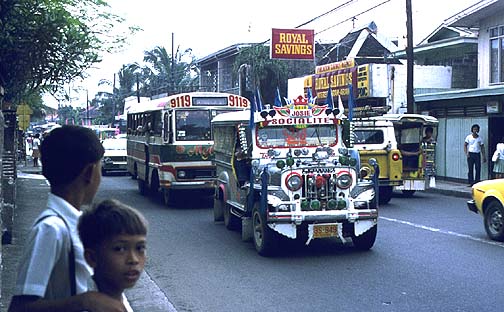
LAWRENCE FUCHS - first head of the Peace Corps in the Philippines
LAWRENCE FUCHS
Lawrence Fuchs, founder of the American Studies Department and the Meyer and Walter Jaffe Professor of American Civilization and Politics at Brandeis University, has contributed greatly to the study of immigration history and policy, ethnicity and race. He worked under John F. Kennedy as a part of the first overseas Peace Corps unit, and eventually became the first head of the Peace Corps in the Philippines. Fuchs was appointed by former President Jimmie Carter and Congress as executive director of the Select Commission on Immigration and Refugee Policy, whose 1981 report became the basis for the Immigration Reform and Control Act of 1986, the first major reform of U.S. immigration policy since 1965.
Fuchs is the author of Family Matters (1973), American Ethnic Politics (1968), Those Peculiar Americans: The Peace Corps and American National Character (1968), John F. Kennedy and American Catholicism (1967), Hawaii Pono (1961), and The Political Behavior of American Jews (1955). In 1991, he published The American Kaleidoscope: Race, Ethnicity, and the Civic Culture, an examination of the experiences of ethnic immigrant groups, African Americans, and Native Americans in relation to each other and the national political culture. It won three national awards, including the John Hope Franklin Prize (1991) from the American Studies Association and the Theodore Saloutos Award (1993) from the Immigration History Society. Fuchs is also the originator and principal scholar of two texts, Black in White America (1974) and The American Experiment (1981).
Justice and Human Rights in the Modern Age Making a Difference in the Shadow of History: Avenues of Participation (Facing History and Ourselves, 1986)
In this clip, Larry Fuchs speaks about the connection between prophecy, history, and civic action. Effective civic action, Fuchs says, can only occur when knowledge of history and confidence in the future—what he calls prophecy—intersect.
"Respect for history means essentially respect for past accomplishments as well as failures. For surely the human species has come a great distance from the time when slavery was almost universally accepted and when even before that, in Hobbesian terms, life was nasty, brutish, and short because nearly all persons lived on the margin of animal existence. A correct interpretation of history includes the story of human error and failure but it also includes the record of success. To act on prophecy, as Martin Luther King, Jr. did, and to be effective, as he was, is to have confidence in the future based upon knowledge of the past.
"There's always the work of justice to be done and the very real accomplishments of the past 25 years must not lull us into a sense of smugness or self-congratulation when there is still so much injustice in our society and in this world. The record of such accomplishments are no comfort to the victims of poverty and prejudice. Too often, indifference is the partner of tolerance, and a correct assessment of our accomplishments in recent history does not obviate the need for prophecy.
"We need modern Amoses, Isiahs and Jeremiahs to remind us of the distance we still have to travel to make this society and this world more just. That does not mean that everyone who uses the language of prophecy is in the authentic . . . prophetic tradition. Almost every American politician uses the language of prophecy.
"If prophecy is not enough, certainly prophetic language is not enough. Actions speak louder than words. And for the individual to make a difference, she or he must be effective in action.
"If we wish to make a difference, that is to be effective, then we should think at least two times about the positions we take and the strategies we adopt in pursuing justice. Mindless action, even when motivated by the best civic impulse, is not likely to be effective. For the individual who wishes to make a difference, I suggest something that may seem obvious to most of you. In our democracy, effective action should follow a careful selection of issues, analysis based on knowledge and consideration of alternative courses of action, and, of course, on sound strategy and tactics."
